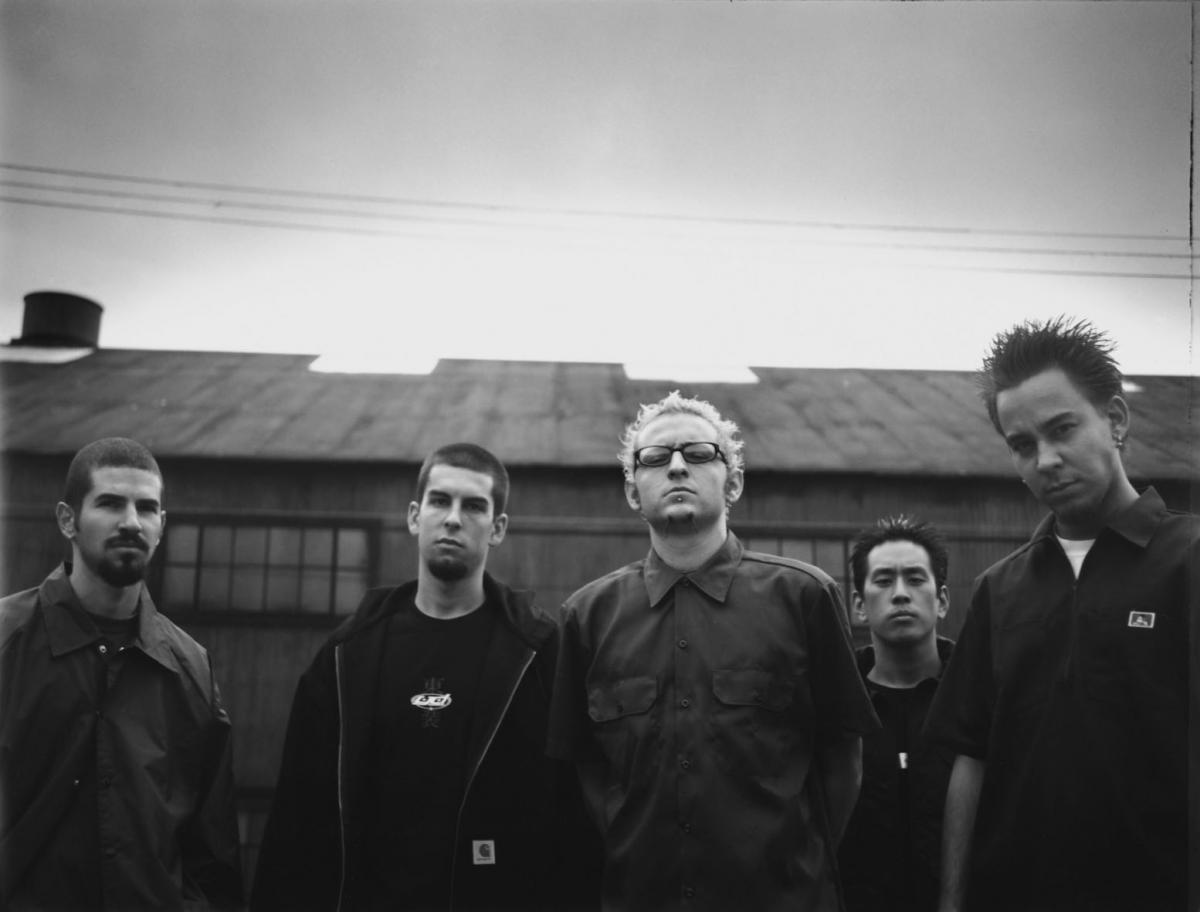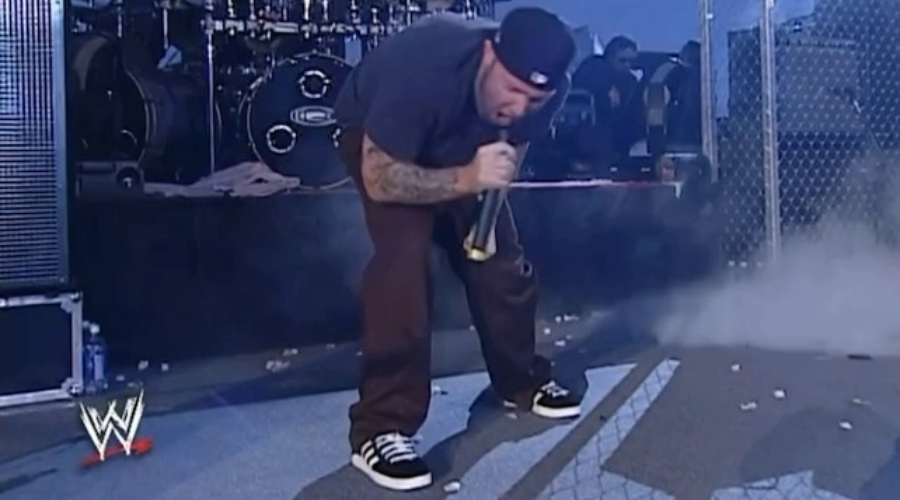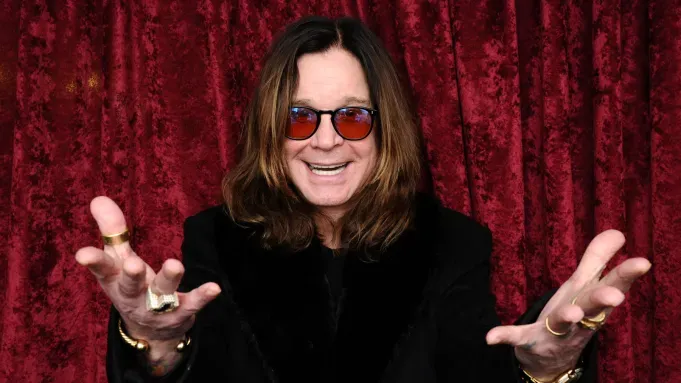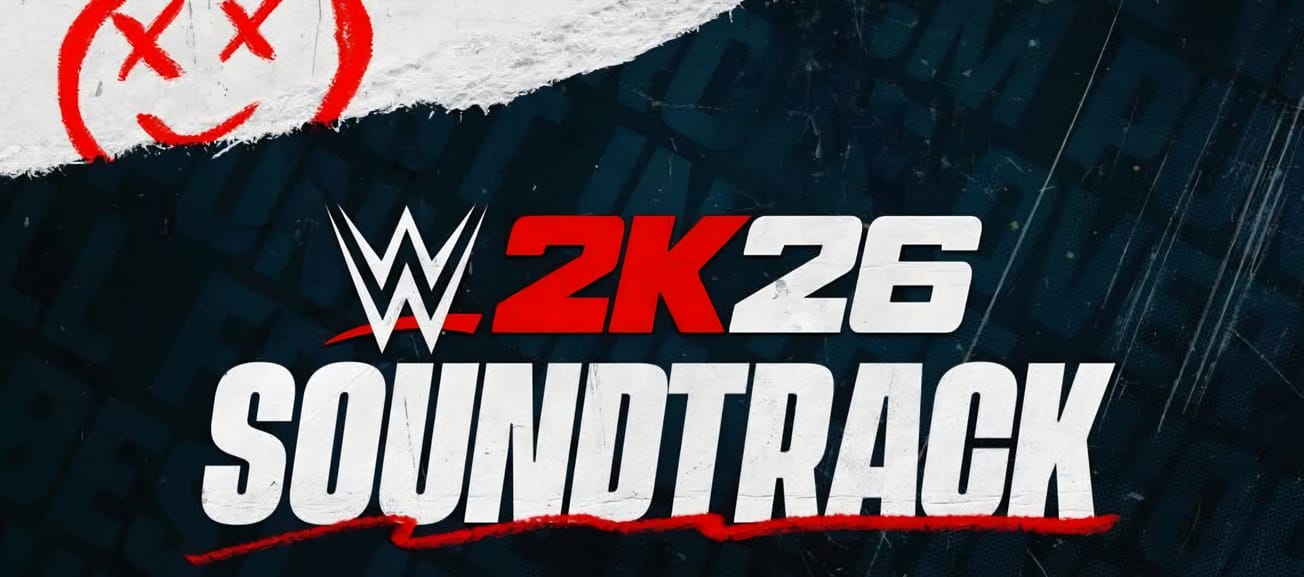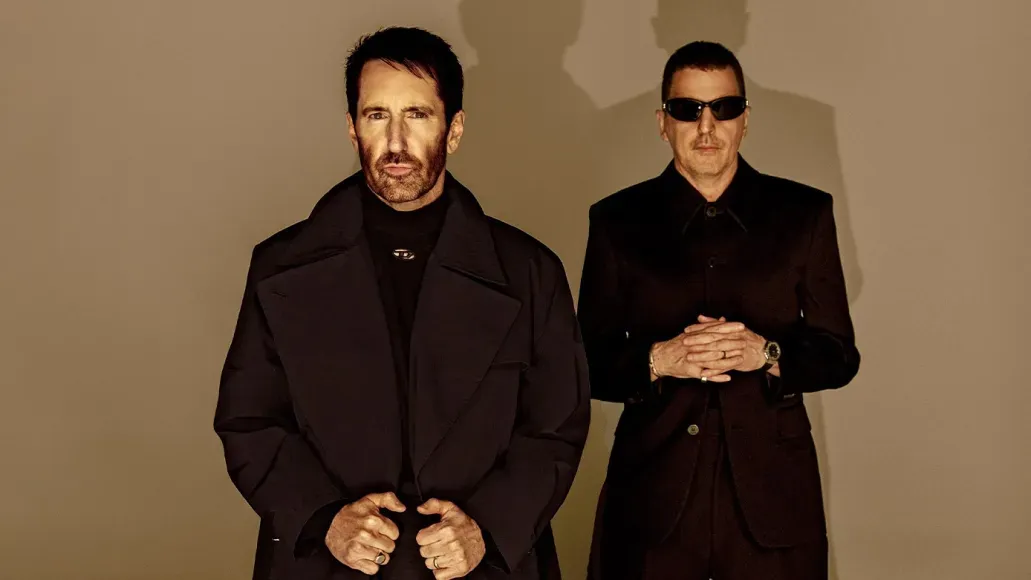Twenty-five years of Hybrid Theory. It's an insane thought. 25 years of one of the defining albums of not only a genre, but a generation. It's an album that holds a lot of meaning for me, too. I wasn't alive when Hybrid Theory dropped, but as long as I have been, it's been in my life. One of my earliest memories is listening to the CD in my father's truck on the way back home from tee ball, when I couldn't have been more than 5. My mom used to fast-forward through the breakdown on "One Step Closer" because she didn't want me telling people to "shut up". In fourth grade, I put the entire album on my iPod Nano, and save for a brief Queen phase, it practically looped until the damn thing gave out. The album would stay with me through my pre-teens, soundtracking my edge-filled middle school years. It was my own 12-track escape from the real world, refuge from the likes of bullies and cross-country relocation. In high school, I drifted towards the metalcore world and onto the likes of Bring Me The Horizon and Silent Planet, but Hybrid Theory somehow never left my rotation. I still have that CD too, albeit broken due to a move. To this day, it remains my favorite album of all time, and maybe the album that had the most influence on me and my taste. I jumped at the opportunity to do a 25 year retrospective and take a look back. Back before the days of selling out Wembley Stadium, before the days of The Lonely Island collaboration, before the days of soundtracking Transformers or Twilight. Back to a time when they were just a couple of guys from Agoura Hills, unaware they were about to set the world on fire.
It's 1997, and it's a big year for nu metal. Deftones, Limp Bizkit, and Snot all dropped landmark albums this year, catapulting them into the mainstream. While those three joined their contemporaries in the light, there was a little band called Xero working in the shadows, sending their demo EP to as many labels that would listen.

Xero, formed just year earlier, was the brainchild of duo Mike Shinoda and Mark Wakefield. The two had been friends since age 12, and in high school they started recording music in a makeshift studio, Shinoda's bedroom, with friends Rob Bourdon and Brad Delson, the latter being Wakefield's neighbor at the time. Despite their age, the group were hardly rookies when it came to music and performance. Wakefield, Bourdon, and Delson had previously played together in a band called Relative Degree, and Shinoda was a longtime emcee and producer. While attending ArtCenter College of Design, Shinoda would meet and recruit Joe Hahn, who would become the band's DJ and turntablist. Delson would also recruit bassist Dave Farrell, whom he was rooming with at UCLA. Their demo contained 4 tracks, 2 of which would become repurposed into tracks for Linkin Park's debut. Something worth noting about this demo is that its DNA is undeniably Linkin Park. I said in my review of Slipknot's Mate. Feed. Kill. Repeat., that it served as "A basic skeleton for the real meat to be built upon". With Xero's demo, the meat's already here, raw as it may be. You wouldn't be able to tell it was recorded in a bedroom, either. Shinoda's previous experience as a producer is apparent as the mixing is incredibly tight, and his flows are the most technical we would ever hear from him. Where the demo falters is Wakefield's vocal performance . Whereas later works would feel like a back-and-forth between vocalists, here Wakefield feels second fiddle to Shinoda, not aided by his unconfident delivery and vocals that sound more like croons than shouts. Xero would unfortunately experience minimal success, playing an (estimated) whopping 11 shows. Xero also struggled on the commercial front, with their demo being turned down by labels at almost every point, citing a lack of cohesive styling, and problems with Wakefield's vocals. After playing a show opening for System of a Down, Delson would introduce the band to Jeff Blue, who was at the time an executive at Zomba Music. Following this meeting, Xero would play a particularly disastrous set at Whisky A Go Go, and it turned out to be the straw that broke the camel's back. Frustrated with the criticisms and the lack of success, Wakefield would depart the band and stop singing entirely, taking up a career in music management. Today, he manages for bands such as Taproot through the company Velvet Hammer. It was also at this time that Farrell would leave to tour with Tasty Snax, a Christian ska punk act. Xero would hang in limbo for a few years, until Blue would recommend Grey Daze vocalist Chester Bennington as a replacement for Wakefield. Grey Daze was a grunge band based out of Pheonix, Arizona and a band that Bennington would leave in 1998 due to creative differences and similar frustrations regarding record labels. Shinoda was drawn to Bennington because of his years of experience working as a frontman, seeing as how Wakefield was notorious for having stage fright. Kyle Christner was also brought in as a fill-in bassist in lieu of Farrell, and would leave later that year, being replaced by Scott Koziol and Ian Hornbeck.
It's 1999. Nu metal has almost reached it's tipping point. Korn, Limp Bizkit, System of A Down, and the like are at the top of the world. However, with this popularity came an inevitable oversaturation. Despite their self-titled EP generating significant buzz online in chatrooms and forums, record labels continued to pass on the band. Nobody wanted to sign Xero, now rebranded to Hybrid Theory, as they were seen as just another band in the mix. It's a shame too, because that Linkin Park sound is here again, and this time, it's pristine. The switch from a bedroom to an actual studio means the recording quality soars leaps and bounds. Compound this with the inclusion of Bennington to their sound, and the result is an EP that's significantly closer to what would come next. Tracks like "Carousel" and "Part Of Me" showcase the two vocalist's signature back-and-forth, and other standouts "Step Up" and "High Voltage" showcase Shinoda's technical lyricism yet again. (The former is also worth noting for possibly being a diss on Limp Bizkit.)
"And rapping over rock doesn't make you a pioneer / 'Cause rock and hip-hop have collaborated for years / But now they're getting randomly mixed and matched up / All after a fast buck and all the tracks suck"
This formula would prove to be their golden ticket, the keys to Willy Wonka's Chocolate factory.

It's 2000. Nu metal is the biggest genre at the world. The peak of it's popularity is here. However, the mainstream was being filled with bands riffing on the style, which lead to feelings of fatigue starting to set in, especially from critics. Something new needed to happen, and boy did it. 2000 was the year Hybrid Theory finally got their big break. This year saw Blue become Vice President of A&R at Warner Records, and one of his contractual terms was the signing of the band. Finally, after years of being turned away by labels (even Warner themselves, who turned the band away three times prior), Hybrid Theory were in. With their foot in the door, and a second name change due to legal issues out of the way, they quickly began work on the new album. The band changed their name to Linkin Park, inspired by the park Bennington used to sleep in his car next to. The band really wanted a ".com" domain, so they changed the spelling to "Linkin", as "Lincoln" was already in use. After a brief hunt for a producer, they finally found Don Gilmore, and brought in Andy Wallace for mixing.
Not all was sunshine and rainbows during production, as Warner took Bennington aside one day, in an effort to move him away from the dual vocal style the band utilized, and possibly into a different project entirely. Shinoda would later confirm in an interview that Bennington told them to "go fuck themselves", sticking to his guns and defending the group. One of the things I find so special about Linkin Park, especially in the early days, is the band's sheer dedication to not compromising. They made the music that they wanted to make, fuck everything else.
The band's lyrics touch on themes of self-loathing, addiction, and abuse, similarly to some of their contemporaries, but it was approached with much more technicality than was common from Limp Bizkit, Korn, or other genre frontrunners. The band's unique sound and impactful lyricism proved to be a recipe for success, as they would find out with the release of their first single.
"One Step Closer" was released on August 29th, 2000, along with it's iconic music video (fun fact, it was directed by former porn director Gregory Dark) to massive success, launching the band to the tops of the charts, quickly earning a spot in Billboard's Hot 100. Relatable lyrics touching on self-doubt combined with the catchy hooks made for a track that imbedded itself in the heads of all that would listen, and leaving those who did craving more. On October 24th, their prayers were answered.
Hybrid Theory was released on October 24th, 2000 to immense success. Within the first week of the record's lifespan, it had already sold 50 thousand copies. 5 weeks later, it was certified gold. It was 2001's best selling record, and today is certified a whopping 12 times platinum, with over 10 million copies being sold in the US alone by 2023. But how is the album musically, you ask?
It's fuckin' unreal, mate.
Shinoda and Bennington weave in and out of in-your-face rap verses and powerful hooks that lodge in your brain with ease, complimented by the amazing sample work and DJ prowess of Hahn, the raw riffs from Delson and driven, punchy drums of Bourdon, and the result is 12 tracks of bliss.
What separates this record from their contemporaries, outside of the aforementioned technicality, is two things:
There was no "Parental Advisory" warning on the record, meaning some small Mormon child could have discovered it just the same as anyone else. It was much more widely accessible due to the lack of explicit content on the album.
The biggest standout comes in lyrical content. While themes of drug addiction, abuse, and depression were not foreign to the genre, Linkin Park explores them with a sense of introspection. Many a song focus on an "I" rather than a "You". Tracks riff on the complex emotional concepts with an inward edge, rather than lashing out at the world around them, playing with the idea of reaction and the process of struggle. It's a really nice subversion that only helps elevate the album.
"Papercut" starts the album off with a bang, employing a Jekyll and Hyde metaphor to toy with the concept of paranoia. Shinoda's vocals are fast paced, and often chopped up, leading to a stuttery, frantic feel, which only serves to amplify the track's themes.
I know I've got a face in me / Points out all my mistakes to me / You've got a face on the inside too/ And your paranoia's probably worse
"One Step Closer" follows that, and then we're thrown into "With You", the first of many where Hahn's skills really get to take center stage. Hahn is truly the unsung hero of the album(and the band as a whole). He carves out a distinct styling with his record scratches and sampling that add a certain texture and atmosphere to the whole record. "Points of Authority" takes poppy hooks and centers them around an abusive relationship, a combination that absolutely shouldn't work as well as it does, but damn it does. Crawling comes next, and this is probably my least favorite track on the record. Not to say it's bad, by any stretch of the imagination. It's great, but it feels weakest. Combine that with the years of overplaying on the radio and a one-note chorus that even Bennington himself would come to dread, and you've got a song that, despite it's quality, overstays it's welcome many years later. "Runaway" is the second throwback to the days of Xero, where it started off as "Carousel". In my research, I stumbled across an interview the band did with MuchMusic, and there's a quote from Bennington that really stuck with me.
"I definitely think that being rebellious is a part of life, but if you really wanna be a rebel, you question everything that comes up to you..."
Bennington's philosophy on rebellion is maybe best explored here in the song's choruses, as he pleads not only for an escape, but for an understanding.
"I wanna run away / never say goodbye / I wanna know the truth / instead of wondering why"
After "By Myself" runs us through the emotional wringer of struggling with one's own identity, made truly haunting by Bennington's roaring frys, we arrive at "In The End", a track that, to this day, is their most popular. This one was my favorite song from age 4 till I was a sophomore. Fuck, even the music video is iconic. Shinoda standing in a CGI wasteland became a meme itself, entirely separated from the music. There's a reason it's the band's most popular song too. Shinoda's flow, while slower, is no less skillful than on any other tracks on the record, supported by Bennington's powerhouse vocals and what might be the catchiest choruses on the whole album. What results is endlessly replayable and infinitely enjoyable.
"A Place for My Head" and "Forgotten" take us back to the Xero days again, as both of these started off as tracks for that project. The tracks are way cleaner than their original versions, but its curious to see how little they've changed outside of that. The lyrics are different, sure, but the structure, flow, and general sound were already there, this time with more powerful vocals from Bennington as opposed to the shouts of Wakefield.
"A Cure For The Itch" switches things up in a major way, just when you thought Linkin Park didn't have any more tricks up their sleeve. Hahn takes the lead here for a two-and-a-half-minute showcase of his prowess with a turntable. The only vocals featured are sampled, with "Mr. Hahn" Hahn leading us through a soundscape you hear him build in real time. It's a unique concept, and one that's executed in a way that it's not too jarring and out of place.
Hybrid Theory closes out with "Pushing Me Away", an amazing sendoff for an amazing record. The track serves as a fitting conclusion, swelling in the climax with themes of leaving things where they lie, letting them end.
We're all out of time / This is how we find how it all unwinds
Shortly after Hybrid Theory's release, the band would put out a special edition, with 2 new tracks and a live recording, the former being "My December", a gloomy tune about being alone for the holidays, and "High Voltage", a remade Xero track showcasing Shinoda's raw skill as an emcee, and the latter being "Papercut", performed at BBC1.
Reanimation, a remix album, dropped 2 years later, featuring remixes and reimaginings of the original tracks with features from prominent figures in the nu metal and hip hop world, including (but not limited to) Jay Gordon of Orgy, Johnathan Davis of Korn, and Method Man.
In 2020, for the record's 20th anniversary, Linkin Park would release a four-disc deluxe editon, featuring all the old Xero and Hybrid Theory demos, as well as some new and unheard demos from various times in the band's early stages.
The band would tour with P.O.D. in 2000 to support the album, before launching the Projekt Revolution Tour in 2002, their first as headliners.
From start to finish, Hybrid Theory fires on all cylinders, letting lose rhythmic barrage after rhythmic barrage in a manner that nobody, not even Linkin Park, would be able to recreate. While their sound would evolve with the later release of Meteora, the band would never reach the heights Hybrid Theory sat at ever again. While the band grew and changed their sound over the years, there was a very vocal group of fans that wanted a return to form, especially in 2017, with the release of One More Light, the band's most distant work from their original release. Bennington was quite opposed to this sentiment and even voiced his opinions on the matter.
“When we made Hybrid Theory, I was the oldest guy in the band and in my early 20s,” he told Music Week. “That’s why I guess I’m like, ‘Why are we still talking about Hybrid Theory?’ It’s fucking years ago. It’s a great record, we love it. Like, move the fuck on. You know what I mean?”
While it's not a sentiment I echo, it's easy to see where people were coming from.
The nu metal era was supposed to be on the way out, and then this record dropped and reignited the genre. Sure, it wouldn't last long and 2003 saw us bite the bullet, but regardless, it's still a feat to behold. Hybrid Theory defined a generation. When I look back on the early 2000s, this album represents it pretty well, not only aesthetically, but also emotionally. Hybrid Theory's themes perfectly capture an angst that was echoed by the people of that generation.
It's difficult to think about where I'd be without this album. I don't know if I would even be working here. Through the best of times, and the worst of times, Hybrid Theory was there. It's the album that ignited my love for nu metal. Hell, my love for music as a whole stems from this album, and for that I can only be eternally grateful.
Linkin Park is currently on tour to promote their latest album, From Zero. Those dates are as follows:
10/25 Bogota, CO
10/28 Lima, PE
10/31 Buenos Aires, AR
11/02 Santiago, CL
11/05 Curitiba, BR
11/08 São Paulo, BR
11/11 Brasilia, BR

Nu Metal Agenda may earn an affiliate commission via purchases on ticket links through this article.


